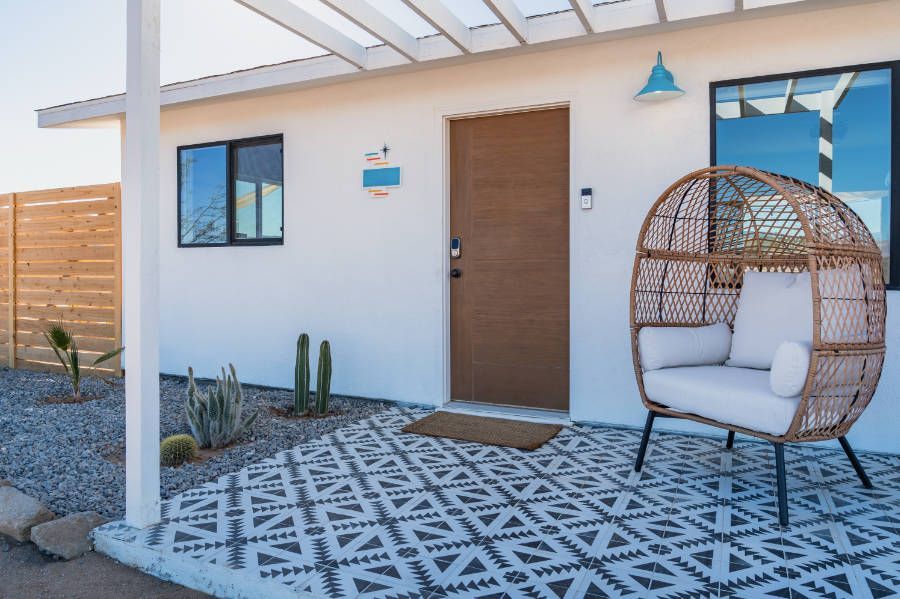5 Questions to ask any property management company before you sign
Dustin Edwards • March 27, 2020
Ask the Questions to Help You Find the Best Property Management Company

Your first rental property is a big deal and the first time you hire a property management company is another milestone. You have made a leap into becoming the landlord and it’s something to be proud of and it can also be scary when you are considering letting someone else take care of your asset on your behalf. We have discovered over the years that many first time owners don’t ask as many questions as more seasoned landlords. For many it is because they aren’t sure what questions they should ask. It is after all their first time.
Whether you ultimately decide to engage with Beach Cities Property Management or you decide on another local property management we want you to be prepared to ask questions. A local property management is charged with taking care of one of your largest assets and that means you certainly are empowered to ask as many questions as possible to help you feel confident in the relationship.
To help jump start the interview process as you consider which property management would be best for your property in Long Beach, we invite you to consider the following:
Can you share with me what my monthly statement would look like based on the fees you are proposing?
While the most common form of marketing property management services is that of a % of the monthly rent (i.e. 6% of the monthly rent is due to the property management company) you want to make sure this is truly the fee that will be charged during the engagement with the company. For example do they have other charges such as:
- Tenant placement fee?
- Renewal fee?
- Advertising fee?
Just because they have additional fees beyond the property management fee doesn’t mean they won’t be a match for you; however, it is important to understand every possible fee and get it in writing prior to signing an agreement. Having a proper net income on your rental comes down to the true cost of ownership and the management fees will impact your overall costs. If you see a fee in the marketing or in their presentation packet keep asking questions to ensure you understand all of the fees.
How many properties do you have under management? How many properties within [your city] do you manage?
Understanding whether a company has <10 properties under management or >800 properties under management will give you perspective on the level of systems they have developed and even the service you can expect.
Smaller companies (i.e. <100) are often operated by individuals and that can mean you get their full attention...or it could mean they are stretched a bit thin and you might have trouble getting a hold of them. If the company has less than 100 units under management ask them to share with you what their daily schedule looks like to give you an idea of what you can expect.
Property management companies with >500 units generally have staff, a physical office location, and have set up systems that allow them to stay in clear communication with tenants and property owners. Of course not all >500 unit firms are created equal and one area you will want to explore is how many properties each manager has under their purview. You can even dig deeper and ask how they delegate work to see how your property will be handled.
Asking specifically how many properties they have under management within your city (or better within your neighborhood) will help you to understand their knowledge of the local market. Rents in Long Beach can vary by more than 10% with a difference of just a few streets and having a company that understands that will benefit you in the long run.
What is your process for fixing something small at the property (i.e. like a clogged sink)?
One of the biggest reasons people hire a property management company is because they don’t want to get the late night phone call “my sink is clogged, what are you going to do?”. As you are interviewing property management companies ask them how they handle the small challenges that inevitably arise from a property. Do they have a handyman on-staff? Do they have a process for calls that come in after 9pm? What happens if the owner of the company is on vacation? Dig deep to make sure that one of the answers isn’t “well they could call you” as it truly is the property manager’s job to make sure the smallest of details are handled.
What is your process for replacing or repairing something larger at the property (i.e. like a roof or mainline)?
If properties only had the small challenges of “my sink is clogged” then life would be much easier but we all know that isn’t the case. Even the best maintained properties will have something major occur such as the need for a new roof or mainline. When something major occurs how does the property management company handle it? How many proposals do they gather? How do they work with the tenant to minimize disruption? When do they seek your approval? Major repairs can be stressful and it is important to understand before an event occurs what will happen to alleviate your fears.
How many people are on your staff? Can you explain their job roles?
The size of a property management company’s staff is usually inline with the number of units they manage (i.e. larger number of units and a larger staff). A larger staff doesn’t always mean that they are the best fit for your goals and that’s why we recommend asking what the job roles are for each of the staff members. Companies that are well managed have specific job titles and roles defined for each team member because that results in better service for the client and better operational efficiency (a true win-win).
Finding the right property management company for your Long Beach rental means taking the time to interview a few companies. We are happy to be interviewed to see if we are the right match for you and your Long Beach rental. We can answer any of the above questions and we can even answer questions about how much your property could rent for when you request our Free Rental Analysis.





